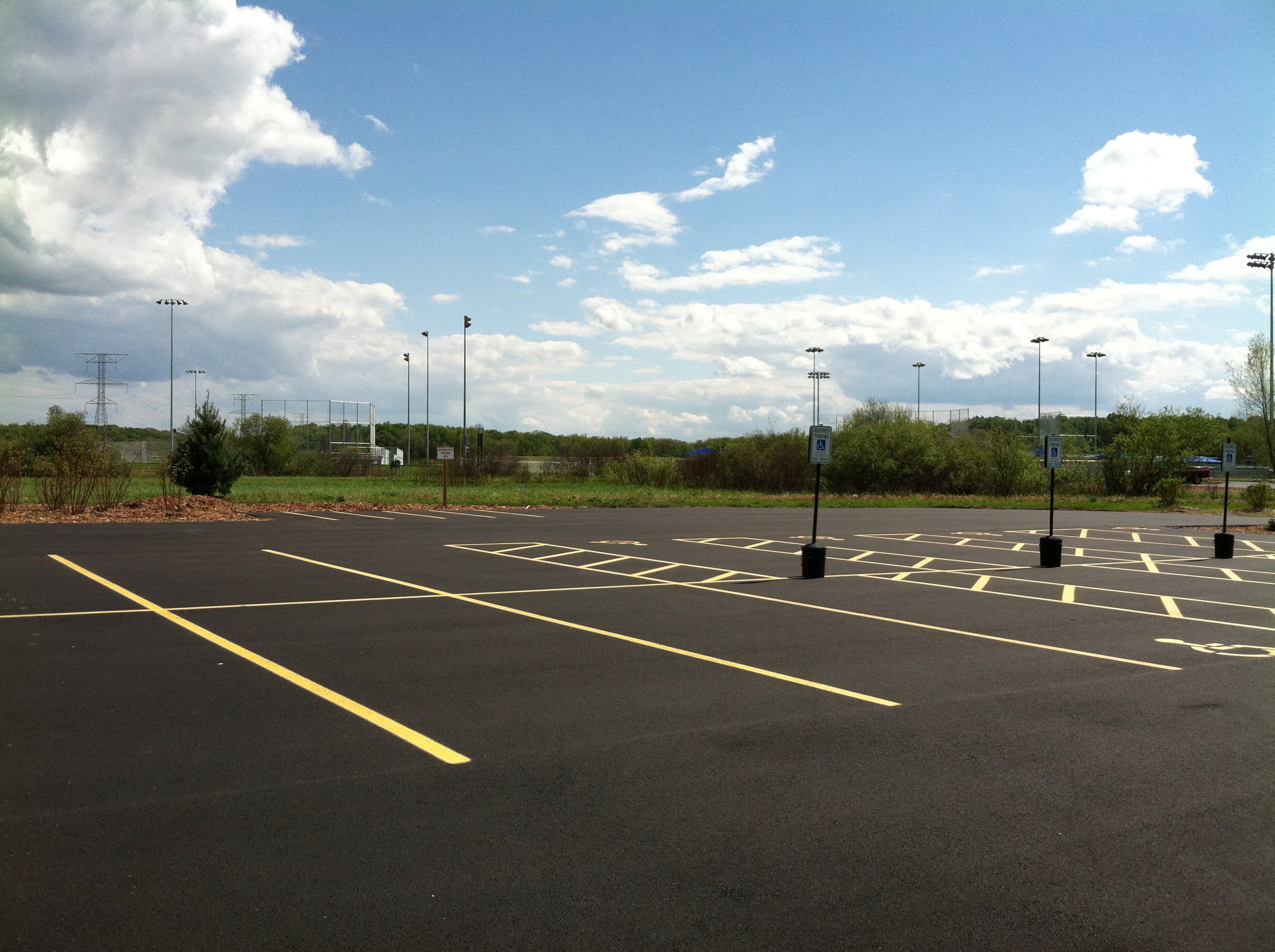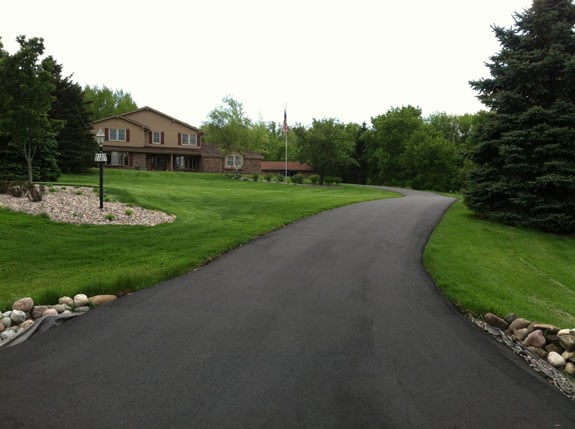If you are considering an asphalt driveway installation there are certain things you need to understand before starting the project. First, determine what time of year is best for installing an asphalt driveway. This will depend on the climate where you live. Determine the best weather conditions for installing an asphalt driveway. Understand how the size and depth of the project will effect installation. Find out what the homeowner needs to do to prepare for asphalt driveway installation.
If you live in a warm climate it is possible to install asphalt year around. If you live in a climate where there is a hard winter, asphalt cannot be installed in cold weather. In cold weather, the hot asphalt will cool quickly and there may not be enough time for the crew to finish grading and smoothing the asphalt before it hardens. If this happens the driveway will come out bumpy and uneven or the project will not get finished.
The thicker the asphalt application the more time the crew has to work with it. In general, a thicker application stays warm longer than a thin application. At 40F a 1.5” application must be finished in 16 minutes, while a 3” application must be finished in 46 minutes. It is better to wait until the temperature is above 70F to install asphalt, to make sure there is enough time to smooth and grade the driveway. It is also best to install asphalt when conditions are dry.
Homeowners generally know very little about installing an asphalt driveway. Preparing for asphalt driveway installation involves selecting a contractor and reviewing the contract. Only deal with reputable contractors, get at least three quotes and make sure everyone is quoting the same quantities and specifications. Get references before making a choice of contractors and review the contract to see who is responsible for such things as, moving fences, lights, overhead wires, damage to grass and bushes, etc. The contract should include: starting and completion dates; workmanship; depth of crushed aggregate; inches of compacted asphalt; types of hot mix; dimensions of pavement; warranty period and what it covers.
Before work is started the homeowner should check with utility companies for underground utilities, obtain a permit if required, and verify that new construction satisfies building codes, placement requirements and inspection requirements.
Milwaukee: 262.965.2121 // Madison: 608.249.7931







